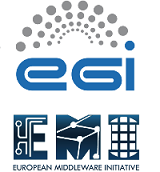Speaker
Conclusions
All new features were requested by the AMGA user community and we will show their usage in applications making use of the AMGA 2.1 release. We believe that AMGA 2.2 will further improve the attractiveness of AMGA within the user community, where AMGA has been already successful in the past.
Description of the work
The federation support allows AMGA users to integrate distributed metadata. That is, it provides users with a single visualized view to metadata that are actually dispersed geographically across multiple sites. It supports handling of partial failures through the user-defined policies. The AMGA Manager, an easy-to-use AMGA GUI toolkit, aims at providing an interactive exploration and searching of metadata in an user-friendly manner, and hiding complexities of accessing an Grid service. It allows users to manipulate metadata schema, entries, access control, user and group information through an user-friendly GUI. In addition, it includes many features improving usability and convenience such as the automatic query composition, importing and exporting metadata into a spread sheet, and filtered metadata searching.
Impact
The new features of AMGA are a major step forward for this middleware component, and they were requested repeatedly by the user community in the past years. The federation support greatly improves users convenience and the security of metadata since less systems would need to hold metadata. In addition, it is possible to enhance performance through parallel metadata searching. The AMGA Manager helps users to build metadata searching environment more easily and faster and to boost productivity in managing large size metadata on Grid.
Overview
We present an overview of the latest developments in the AMGA metadata catalogue that have been made available with the AMGA 2.1 release and take a look at the upcoming AMGA 2.2 production release. The most prominent new features include federation support and an easy-to-use GUI toolkit. To exemplify their value existing use cases will be shown.
URL
http://cern.ch/amga

